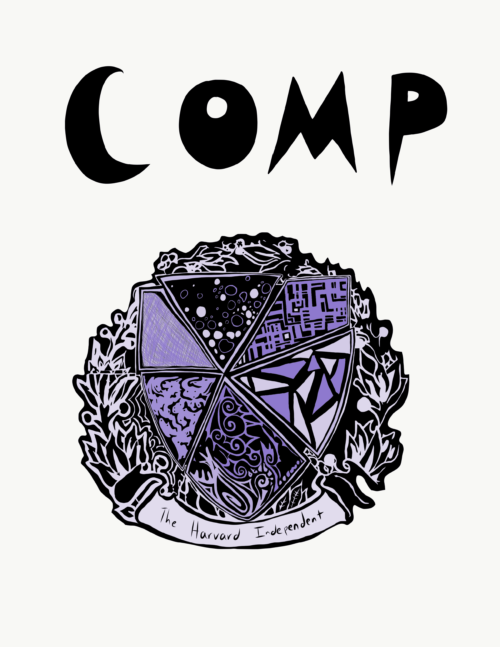It’s Comping Season
A look into Harvard’s favorite passion
By JULIO V. PARDO
Dear reader:
A few days ago, I woke up to an inbox full of emails. From the ten unread I had disregarded the night before, they had increased by the dozens, signaling unmistakably that the Spring Comping Season had begun. As the week progressed, there was no mistake about it, for even the dining halls’ customarily amorphous noise pollution had suddenly acquired shape. Countless conversations about the new extracurricular endeavors awaiting undertaking sprung up at every dinner table, hallway, and entryway.
In my senior year of high school, I had thought that my acceptance into Harvard would signify the end of intense application processes in my life, at least for the immediate future. I was wrong. Back then I was an innocent adolescent ignorant of the degree to which Neo-Marxism dominated the forums of political discussions in universities, unaware of the fact that you do not wear Vans shoes during a snowstorm, and, most importantly, that student organizations at Harvard College love their comping processes and Harvard students love to comp.
Student organizations at Harvard College love their comping, and it is understandable. After all, they are led by members of the student body, which, in its plurality, is composed of concentrators in the social sciences. A large group of them know about market failures caused by information asymmetries. They are aware that not everyone who exhibits interest in their organizations will be deeply committed to their projects. The comping process for them is, in essence, an instrument to deal with these asymmetries, requiring potential members to provide a signal, a costly indication that they want to be part of an organization. Hopeful members are often expected to enroll in class-like programs, commit a substantial amount of their time to meetings and other activities, and, sometimes, be the object of less conventional and generally deprecated traditions.
HFAC runs among the most popular of these comp processes. According to the organization’s Chief of Education and former member of the leading board, Ahan Malhotra ’21, the program boasts one of the largest pools of hopeful entrants – approximately 130. He described his program as serious and committed to the spread of financial literacy through its class-like structure. Students are expected to attend lectures, attend section, and complete problem sets. They cannot have more than three unexcused absences, and if they miss lecture, they must watch its recorded version and write a paragraph about the material covered in it. Malhotra explained that after admission, students become part of a team in charge of managing assets valued at $40,000, which largely explains the excessive rigor.
I asked Malhotra for the one reason why his comping process is the best on-campus. He, without hesitation, provided five. He said, “We are super organized; our teaching material is relevant to today’s world and provides factual information; we are inclusive and for everyone, not only for people who want to go into finance world; our lectures are well taught, employing case studies in the fashion of the business school; and our final project is a stock pitch that serves as a material testament of what our compers are capable of doing once they finish with our process.”
Other groups on campus famous for their selectiveness include HCCG, the Hasty Pudding, the Crimson Key Society, and OAASIS, but none responded to the Independent’s requests for statements. I, however, was genuinely interested in learning what HCCG, an organization widely known for its professional dressing. I was also intrigued by the Crimson Key Society, wondering why it requires a comp. It was my understanding that showing up and sacrificing your free time for a noble community service cause would suffice to be admitted into a community service club – but not at Harvard. That is not to mention OAASIS, the Organization of Asian American Sisters in Service, for which identifying as an Asian American service-oriented woman is only one prerequisite.
Dear reader, I confess I am no longer that kid who arrived fresh and inexperienced at the Harvard gates two falls ago. I have been seasoned by snowy, cold winters and fierce ideological debates with my peers and professors. My understanding about the world has expanded greatly, but I still cannot rationally comprehend, now two years into my career, Harvard students’ obsession for comping. I have had to give up and resign myself to popular wisdom as embodied by an adage from my old country: “to each madman his craze.”
Truly yours,
A comper
Julio Pardo ‘22 (julio_v_pardo@college.harvard.edu) wonders how students who just got into their comp-heavy organizations are feeling.


